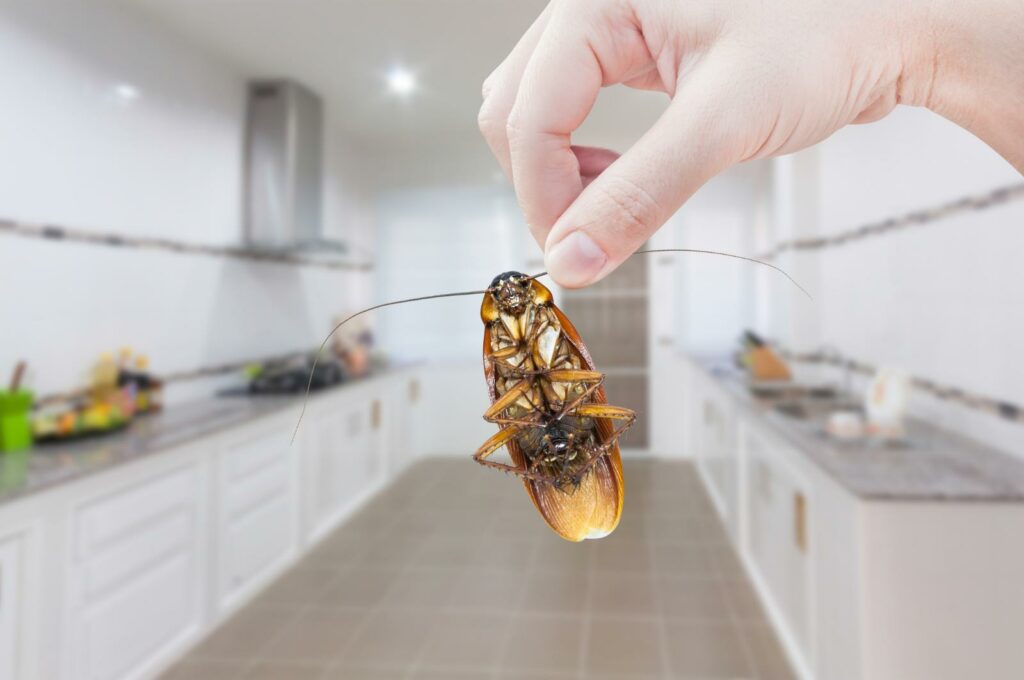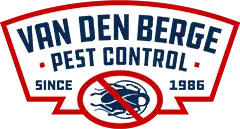
Contents
Are pests buzzing around your mind, causing a constant itch of annoyance? Well, fear not, for the world of chemical pest control is here to save the day.
With a variety of methods at your disposal, you can wage war against those pesky critters. But before you dive headfirst into the realm of chemical solutions, it’s important to understand the ins and outs of this approach.
From the different treatment options available to the safety considerations involved, this discussion will equip you with the knowledge needed to conquer your pest problems.
So, get ready to explore the fascinating world of chemical methods for effective pest control and discover how you can regain control over your space.
Effective Pest Control – Key Takeaways
- Chemical pest control methods are highly effective at eliminating pests and can provide long-lasting results.
- However, there are potential disadvantages, such as harm to beneficial insects, contamination of soil and water sources, and risks to human health if not used properly.
- It is important to follow instructions and use chemicals in moderation while also exploring alternative methods like integrated pest management.
- Integrated pest management limits the use of chemicals, incorporates alternative methods, and promotes a more sustainable approach to pest control.
Overview of Chemical Pest Control
Chemical pest control provides an effective solution for eliminating pests and preventing further infestations. When it comes to pest control, using chemicals has several advantages.
First and foremost, it’s highly effective at eradicating pests. Chemicals such as insecticides and rodenticides are designed to target specific pests and can quickly eliminate them from your home or garden. This means that you can enjoy a pest-free environment without the hassle of dealing with pests on a regular basis.
Another advantage of chemical pest control is its convenience. Unlike other methods, such as trapping or physical removal, chemical pest control can be easily applied to large areas or hard-to-reach places. This makes it a practical and efficient solution for dealing with widespread infestations.
However, it’s important to consider the potential environmental impacts of chemical pest control. While these chemicals are effective at eliminating pests, they can also have unintended consequences. Some chemicals may harm beneficial insects, such as bees and butterflies, which play a crucial role in pollination. Additionally, if not used properly, chemical pest control can contaminate soil, water sources, and pose risks to human health.
To minimize these risks, it’s essential to follow the instructions provided by the manufacturer and use chemicals in moderation. It’s also worth exploring alternative pest control methods, such as integrated pest management, which focuses on a combination of techniques to manage pests while minimizing environmental impacts.
Common Chemical Treatment Options
If you’re looking for effective ways to control pests without relying solely on chemicals, there are several common treatment options available. While chemical methods can be highly effective in eliminating pests, they may also have negative environmental impacts. However, there are alternative solutions that can help minimize these impacts.
One common chemical treatment option is the use of insecticides. Insecticides are chemicals specifically designed to kill insects. They can be applied in various forms, such as sprays, dusts, or baits. Insecticides target specific pests and can be highly effective in controlling their populations. However, it’s important to carefully follow the instructions and safety precautions when using insecticides to minimize any potential harm to the environment.
Another common chemical treatment option is the use of rodenticides. Rodenticides are chemicals used to control rodent populations. They’re typically available in the form of bait, which attracts rodents and kills them upon consumption. Like insecticides, rodenticides should be used with caution to prevent unintended harm to non-target species and the environment.
Fumigation is another widely used chemical treatment option. Fumigants are gases or volatile liquids that are used to control pests in enclosed areas. Fumigation is often used to eliminate pests like termites or bed bugs. While fumigation can be highly effective in eradicating pests, it’s important to consider its potential environmental impact and explore alternative solutions whenever possible.
Safety Considerations for Chemical Pest Control
To ensure the safe and effective use of chemical pest control methods, it’s essential to follow proper safety guidelines and precautions. Here are some important safety considerations to keep in mind:
- Personal Protective Equipment (PPE):
- Wear appropriate clothing, including long sleeves, pants, closed-toe shoes, and gloves, to minimize exposure to chemicals.
- Use respiratory protection, such as masks or respirators, when working with airborne chemicals.
- Proper Handling and Storage:
- Read and follow the instructions on the product label carefully.
- Store chemicals in their original containers and keep them out of reach of children and pets.
- Dispose of empty containers and unused chemicals according to local regulations.
It is also crucial to consider the environmental impact of chemical pest control methods. While chemicals can be effective in controlling pests, they can also have unintended consequences on the environment. To minimize this impact, it’s important to explore alternative solutions:
- Integrated Pest Management (IPM):
- IPM focuses on preventing and managing pests through a combination of strategies, including biological control, cultural practices, and the use of chemical treatments as a last resort.
- By using IPM techniques, you can reduce the reliance on chemical pesticides and promote a more sustainable approach to pest control.
- Natural and Organic Methods:
- Natural pest control methods, such as the use of beneficial insects, traps, and repellents derived from natural sources, can be effective in managing pests without relying on chemical treatments.
- Organic farming practices, which avoid the use of synthetic pesticides, can also help protect the environment and promote healthier ecosystems.
Benefits and Limitations of Chemical Methods
Using chemical methods for pest control offers both advantages and limitations in effectively managing pest populations. When it comes to benefits, chemical methods provide quick and efficient results in eliminating pests. They can effectively target specific pests and prevent further infestations. Chemicals also have a longer residual effect, which means that they continue to kill pests even after the initial application. This can be particularly useful in controlling pests that are difficult to eradicate, such as bed bugs or termites.
Chemical methods also offer a wide range of options for pest control. There are various types of chemicals available, each tailored to target specific pests. This allows for a more customized approach, ensuring that the right chemical is used for the specific pest problem at hand. Additionally, chemical methods can be used in conjunction with other pest control methods, such as traps or physical barriers, to enhance their effectiveness.
However, it’s important to consider the risks associated with chemical methods. Chemicals can pose potential risks to human health and the environment if not used correctly. Exposure to certain chemicals can cause adverse health effects, such as respiratory problems or skin irritations. Moreover, improper use or overuse of chemicals can lead to the development of pesticide resistance in pests, making them harder to control in the long run.
Integrated Pest Management Approach With Chemicals
Now let’s explore how the integrated pest management approach can be effectively implemented with the use of chemical methods. When it comes to controlling pests, an integrated approach combines various strategies to achieve the best results. By incorporating chemical methods into this approach, you can effectively manage pests while minimizing their impact on the environment.
Here are two sub-lists that highlight the benefits of using chemicals within an integrated pest management approach:
Advantages of Integrated Approach with Chemicals:
- Enhanced Control: Chemical methods provide a powerful tool to combat pests, offering quick and targeted solutions. When used in conjunction with other control measures, such as biological controls and cultural practices, chemicals can significantly improve pest control outcomes.
- Flexibility and Adaptability: Chemicals allow for adaptability in pest management. Different chemicals can be used for different pests, ensuring a tailored approach to specific pest problems. This flexibility allows for the use of alternative methods when necessary, reducing the reliance on a single control strategy.
Benefits of Alternative Methods:
- Reduced Environmental Impact: While chemicals can be effective, an integrated approach limits their use to minimize environmental harm. By incorporating alternative methods, such as biological controls, habitat manipulation, and crop rotation, the reliance on chemicals is reduced, resulting in a more sustainable and environmentally friendly pest management system.
- Long-Term Efficacy: Alternative methods complement chemical control by targeting different aspects of pest management. By using a combination of approaches, the risk of pests developing resistance to chemicals is reduced, ensuring long-term efficacy in pest control.
Final Thoughts
As you navigate the realm of pest control, remember that chemicals are powerful tools that can both protect and harm. Just as these chemical compounds can eliminate pests, they also hold the potential to harm the delicate balance of the natural world.
Like the intricate dance of a butterfly, the use of chemicals must be approached with caution and respect. Embrace the integrated pest management approach, where chemicals are just one part of a larger harmony, ensuring a safer and sustainable future.
Recent Posts
Why Use Effective Earwig Removal Techniques at Home?
Earwigs may seem harmless, but they can wreak havoc on your garden and even invade
5 Effective Spider Control Tips for Homeowners
If you’re looking to keep these eight-legged visitors at bay, there are effective spider control
How to Effectively Control Spiders in Your Home
Controlling spiders in your home requires an understanding of their behavior and environmental preferences. By
